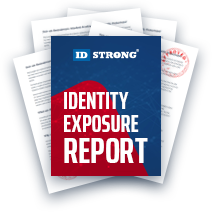7 Signs That Your Children's Social Security Number is at Risk
Table of Contents
- By David Lukic
- Published: Feb 22, 2021
- Last Updated: Mar 18, 2022
Something scary that you may not have even heard about is child identity theft where your children’s social security numbers could be at risk from scammers, hackers, and identity thieves.
The Federal Trade Commission (FTC) estimates that more than 3.5 million children have been affected by the theft of their social security number.
Basic Details About SSNs
When a baby is born, the parents notify the Social Security Administration, who issues a new number and sends the parents social security card for newborn.
Social security numbers are issued for life and typically never changed. If something is incorrect on your social security card, you must contact the Social Security Administration directly to get it changed.

The Dangers of a Stolen Children Social Security Number
Criminals have figured out that stealing a child’s SSN gives them a free pass to open new accounts, wrack up debt, take out loans, rent property, and even get a driver’s license. Some scammers even buy houses, get jobs and sign up for utilities using your child’s name and social security number. The FTC reports that children as young as six months old are victims of this type of fraud.
The real danger is that this type of thing can go on for many years without you even being aware of it. By the time your child reaches high school or college and applies for credit and is rejected, the credit history damage is already done and will be very difficult to repair.
Sometimes these scammers use stolen SSNs to file fake tax returns, get refunds, claim exemptions, or even use the child tax or earned income tax credit.
Often the thieves steal children’s social security numbers and then turn around and sell them on the dark web for profit. There is a huge market for fresh, unused SSNs. Sometimes a stolen identity is worth $2 on the dark web, and organized crime has tapped into this lucrative market.
Depending on the damage done, if your child receives government benefits for a disability, those benefits may be at risk if your child’s identity is stolen.
7 Signs that Your Child’s SSN is at Risk
Although this type of thing can go on for a long time unnoticed, there are usually signs that you can watch out for to gauge whether or not your child's social security number is being used for criminal activity. A few of the more obvious signs are:
- Credit Card Offers - If your young child or baby starts getting credit card or loan offers in the mail, this should be a big red flag that something is going on. A child’s credit is a blank slate that has not yet been used. They would only start getting credit card offers if their credit bureau account was active. Freeze child's credit if you notice any suspicious activity.
- Mortgage Refinancing or Insurance Flyers - If you receive something in the mail referencing your child’s mortgage and refinancing or offering them insurance, this is another serious warning sign. Someone may be using their identity and has even purchased a house in their name using their social security number.
- Denied Credit - When your child goes to apply for financing for school, if they are denied due to a poor credit score, someone has probably stolen their SSN and has been using it. Their spoiled credit may take a while to repair.
- Collection Calls - Is your child getting collection calls for unpaid debts? It may not just be a mistake; someone could have charged a fortune in your child’s name and then skipped out on the bills.
- Grocery Store Coupons - If your child receives local offers from businesses or grocery store coupons like an adult, take notice. Your child would have no credit; therefore, no company would be marketing to them unless someone has been using their SSN.
- IRS Tax Notice - The Internal Revenue Service (IRS) sends you a notice claiming your child failed to file taxes or that someone else filed in their name. That is another huge indicator that someone has compromised your child’s identity and has stolen their SSN.
- Existing Accounts - If you go to set up new accounts in your child’s name (for example a new bank account) and the operator tells you they already have an account under that SSN, someone has probably stolen your child’s identity, and you must take action quickly.

Tips to Keep Your Children’s Social Security Number Safe
It is much easier to prevent child identity theft rather than pick up the pieces after it has happened. To give your child the best possible future and to protect their identity while they are young, use these tips:
Keep your child’s birth certificate and social security card along with other private documents in a locked box or safe deposit box at the bank until you need them.
- Never carry your or your child’s SSN card around in case your wallet or purse is lost or stolen.
- Shred any documents that contain your child’s social security number.
- Opt-out of being included in school rosters and lists to keep your child’s information private.
- Contact the three big credit reporting agencies (Equifax, TransUnion, and Experian) to put a credit freeze on your child’s credit file until they reach adulthood. That way, no one can open up new accounts using their SSN without your knowledge.
- Never share your child’s SSN with anyone unless absolutely necessary. Some places like medical facilities may ask for it, but you can refuse to provide it.
- Review privacy policies for anyone who does collect your child’s information. Find out how long they will keep it, how it will be stored, and how they protect this information from data breaches and identity theft.
- Get a copy of your child’s credit report every 12 months from each of the bureaus. You can do so at annualcreditreport.com.
- Sign up for an IP PIN with the IRS so that no one can file bogus tax returns in your child’s name.
- Educate your kids on the dangers of sharing your child's personal information with anyone outside the home.
If your child is the victim of identity theft, contact the FTC to report the abuse and the credit bureaus to put a fraud alert on your child's account.



















































































































